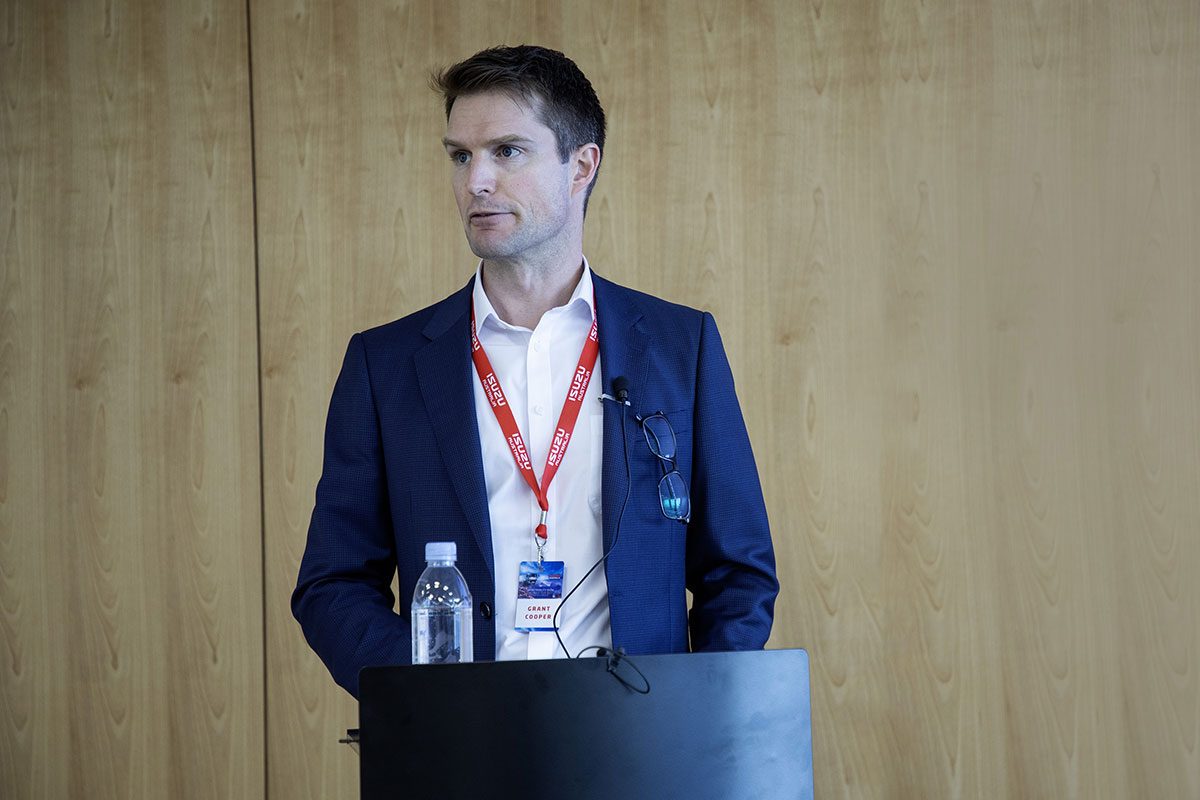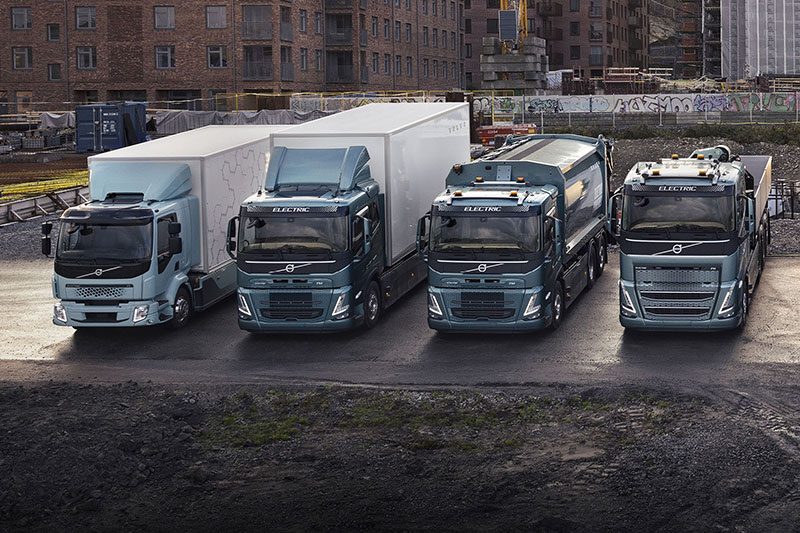Einride is a Swedish company you probably haven‘t heard of. But it may be one to watch as the future of transport unfolds. Here‘s what we know…

It‘s perhaps fair to say that not since the dawn of the automobile have we seen numerous start-up companies in that space, as we have in the past decade. The need for alternative, environmentally friendly fuels, coupled with the exponential growth in communications and artificial intelligence technologies, has opened the floodgates for traditional automobile manufacturers and technology companies alike to run with their ideas for the vehicles of tomorrow. One of those ideas is the autonomous vehicle – selfdriving, driverless, cabless even. Forgetting for a moment the real-world practicalities and societal implications, such a concept is no flight of fancy. It‘s real – everyone from industry giants, like Daimler, to small private companies is racing to prove the concept. And they‘re mostly a lot closer than you‘d expect. One of these companies is Einride, a Swedish technology company that launched in 2016 and focuses on digitalisation, electrification and automation. Einride‘s founder, Robert Falck, was an engineering manager at “a certain truck manufacturer in western Sweden”, and the rest of its core team includes individuals entrenched in IT.
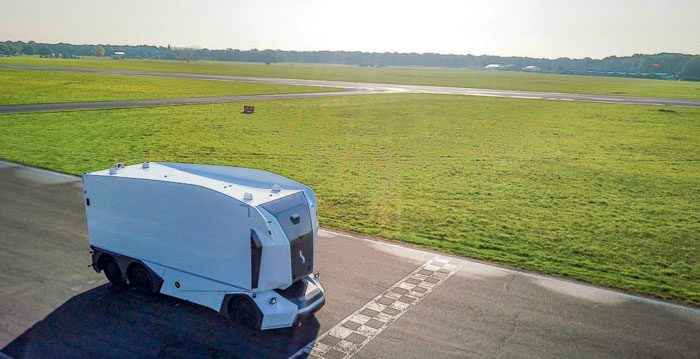
Photo: The Einride Pod takes to the Top Gear test track.
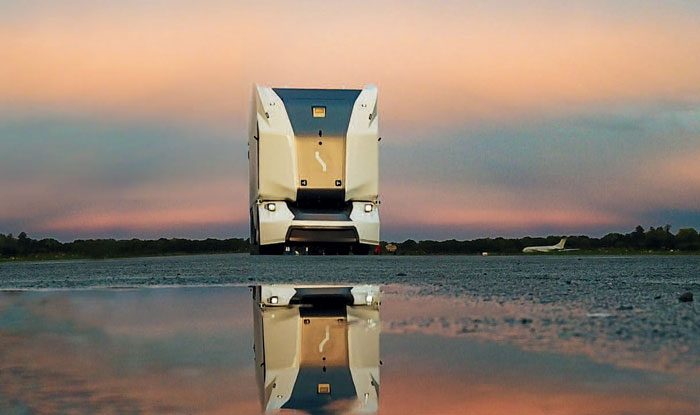
Photo: Is the sun setting on trucking as we know it?
In 2019, Marc Llistosella, former president and CEO of Mitsubishi Fuso Truck & Bus Corporation and Head of Daimler Trucks Asia, joined the board of directors. Soon after, Anders Böös (previously chairman at software developer Hantverksdata AB) was appointed chairman of the board, and former Spotify product manager Gabriel Lundberg as CPO. In March, the company attracted Jonas Hernlund as CCO, who before joining the company designed and launched Google‘s Investor & Startup operations in Northern Europe. In November, Dr Per Olof Arnäs, who has been working in and researching the transportation industry since the late 1980s, was appointed senior logistics expert. So the brains behind Einride are very much technology people; technology people who want to revolutionise transport. With the exception of Tesla, time has proved this to be a tough ask. At least the man right at the top of Einride, along with Llistosella, has some actual understanding of the trucking industry – and Einride seems to be moving rather quickly. In September it despatched its COO to the US so the company could set up business and operations there, and in October its next-generation Pod made its debut. Einride‘s first vehicle, the Pod, debuted in April 2017.
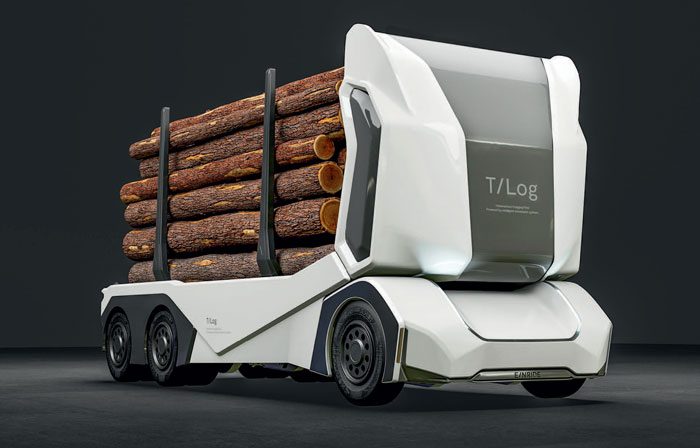
Photo: The Timber Pod. Imagine that trundling around Kaingaroa…
The concept was for an electric, self-driving vehicle with no driver‘s compartment that could be remotely controlled by drivers. The 7-metre long vehicle was designed to have a cargo capacity for 15 standard pallets and 20 tonnes. Battery capacity of 200kWh meant a distance on one charge of 200km. Einride also aimed to develop a remote driving system, charging stations, and an infrastructure that would make the system the most pioneering of its kind, claiming that this transport system could reduce carbon dioxide emissions from freight transport in Sweden by up to 60% by 2030. In July 2018 Einride unveiled the Timber Pod at, interestingly enough, that year‘s Goodwood Festival of Speed in the UK. This autonomous, all-electric logging truck was more powerful than the pallet Pod, incorporating some off-road capability, with the ability to navigate forest roads. The next-generation, 2020 Pod has been enhanced for commercial availability on a global scale. The design has been refined for better aerodynamics and functionality while preparing it for wide-scale production, says Einride. With the latest generation Pod the quoted specifications indicate a loading capacity of 15 to 18 pallets but a lower payload of 16 tonnes (GVM is 26 tonnes).

Photo: Einride‘s Freight Mobility Platform
The range per charge is also quoted lower at 130 to 180km. Since the Pod has no driver‘s compartment and existing autonomy standards rely on some level of human operation as a baseline, it was necessary for Einride to develop a proprietary methodology for describing the use cases for Autonomous Electric Transport (AET). The AET classification system ranges from levels 1 to 5, and levels 1 to 4 are available for pre-order based on individual business needs. AET 1 (Fenced) is for closed facilities with predetermined routes that are best suited for fully autonomous operation. AET 2 (Nearby) includes closed facility operation, but adds the capability to traverse public roads over short distances between destinations. The company says both AET 1 and 2 Pods are available for reservation now and will begin shipping to customers in 2021. AET 3 (Rural) allows operation on back roads and less busy main roads between facilities, at a maximum speed of 45kph. Finally, AET 4 (Highway) includes fully autonomous operation on freeways and other major roads at up to 85kph.

Levels 3 and 4 are available for pre-order, and will ship to customers in 2022/23, says Einride. Operating the Einride Pod is based on a different cost structure. First up is a US$10,000 reservation fee, and businesses will be responsible for approximate operational fees of US$18,000 per month for AET 1 and US$19,000 per month for AET 2. Pods with AET 3 will cost approximately US$20,000 per month to operate, while AET 4 will cost US$22,500. The subscription fee includes access to the Einride freight mobility platform, which will coordinate and operate the Pods, overseen by Einridecertified remote operators. Einride has certainly attracted the attention of some forward-thinking entities. Since 2017 numerous European transport and logistics companies have partnered with Einride to test its Freight Mobility Platform and move towards operating the Pod. The earliest of these include Swedish grocery company Lidl and German logistics company DB Schenker. In 2018, Dubai‘s Roads and Transport Authority signed a memorandum of understanding with Einride regarding the sustainable transformation of Dubai‘s road freight transportation system, planning the sustainable transformation of the logistics sector in Dubai and identifying possible installations of Einride‘s solution.

In 2019, Coca-Cola European Partners, the Swedish licensee of the Coca-Cola portfolio in Sweden, partnered to launch a commercial pilot outside Stockholm. Commercial operations with the Michelin Group were to commence in 2020 with the deployment of the Einride Pod at Michelin sites in France. When the pod was originally launched in 2017, Einride‘s stated ambition was to deliver a complete transport system between Gothenburg and Helsingborg by 2020, involving 200 pods with associated charging stations on the route. The 200 pods on this route would have capacity of up to 2,000,000 pallets per year, with CO2 emissions savings the equivalent of 400,000 passenger cars travelling the same distance. Does Einride‘s system actually work? We don‘t yet know. The Lidl pilot programme should have commenced in October with the first electric transport operations taking place, and earlier in the year Einride put a 42-tonne DAF-based electric truck, underpinned by Einride‘s Freight Mobility Platform, into service with Swedish vegan food brand Oatly.
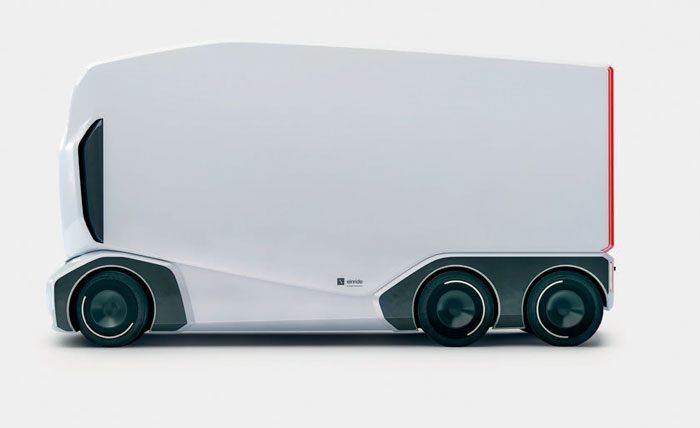
Oatly‘s electric trucks are said to be the first in Europe for heavy transport and the aim is to build up to operation of the Pod. While the Pod‘s early implementation dates haven‘t materialised (perhaps the company‘s taken a more conservative approach to proving its technology), October saw the Pod take to the track at the 2020 Goodwood SpeedWeek and also make history when it became the first vehicle of its kind to complete a lap and set a record at the famous Top Gear test track. It ran at its top speed of more than 80kph and Einride CTO Pär Degerman commented that the run was a display of the AET 4 (Highway) solution. Falck added the achievement was “one that shows our technology is prepared to meet a wide range of typical freight operating conditions”. We‘re not so sure about that, the question of navigating other road users still hangs in the air for one… It will be interesting to watch the development of all the pilot programme partnerships, nonetheless.
Finally, what does all this mean for the trucking community? Einride says: “Beyond the cost and sustainability benefits, this innovation takes one step further in transforming what it means to be a trucker. In place of long, tiresome, and potentially dangerous hours on the road, remote operators will have a more stable, safe, and regular work environment. This fundamental shift will be crucial in addressing the systematic problems in the trucking industry, such a shortage of more than 51,000 truckers and a gender split that is only 6% female in the US. “In the future, operators will be employed by customers and operational partners, relying on the Einride Freight Mobility Platform for optimisation and execution of electric and autonomous operations.”

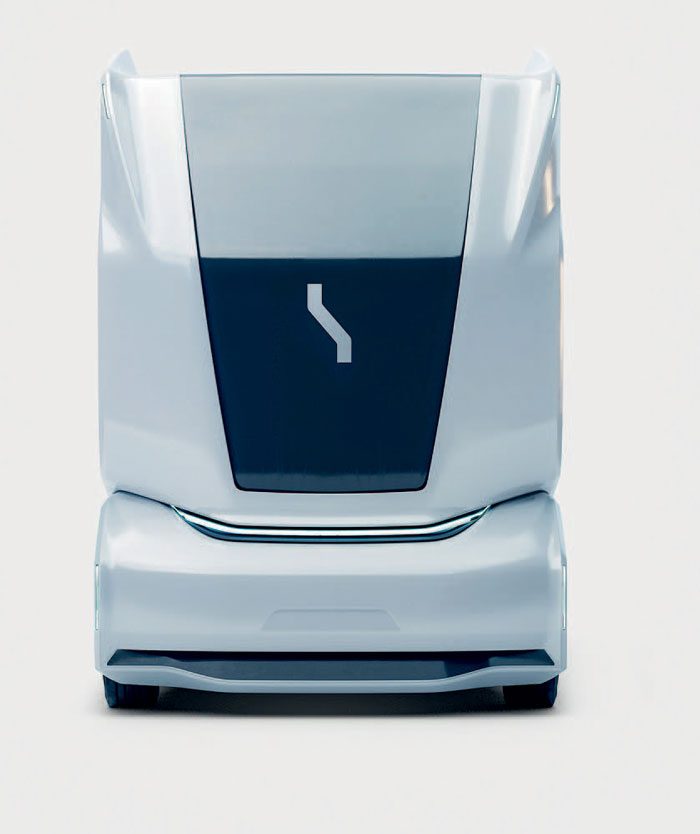
Read more
Road to Zero Isuzu styles
0 Comments6 Minutes
Ready for the harvest
0 Comments12 Minutes
VGA introduces electric
0 Comments8 Minutes
Celling’ the future
0 Comments14 Minutes


